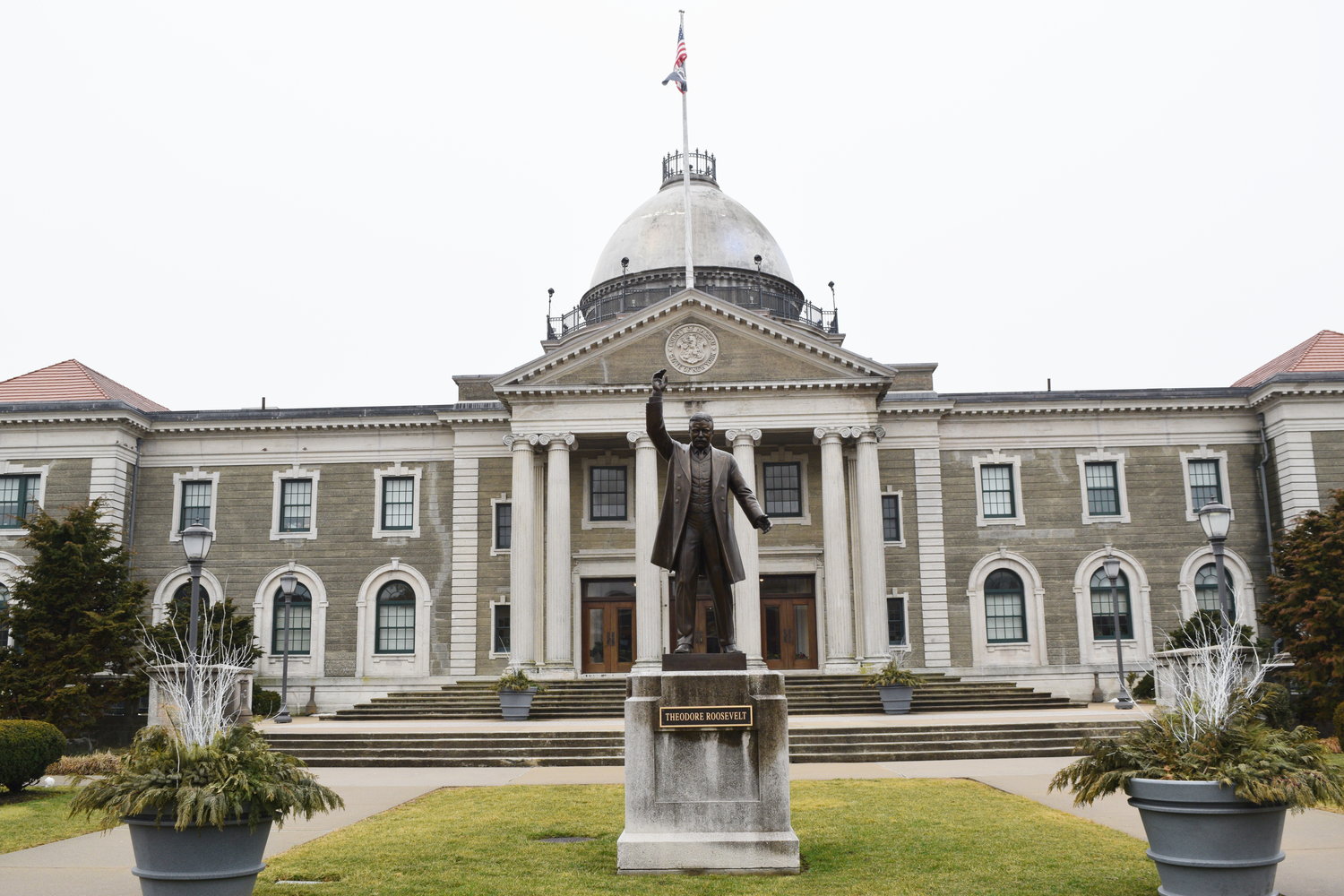Bruce Blakeman claims a successful first year in office in his State of the County address
It’s been a little more than a year since Bruce Blakeman officially took office as Nassau County executive. Since then, how much has life improved for the nearly 1.4 million people living under his administration?
Significantly. At least according to Blakeman, thanks to his work with the majority party in the Nassau County Legislature. Triumphs Blakeman shared as part of his Feb. 28 State of the County address.
And there was a lot on Blakeman’s plate, after taking over for Laura Curran — not all that could be handled at the county level. Inflation. Catalytic converter theft. Support for local businesses. Bringing Nassau out of the Covid-19 era. And challenging some proposals that had made their way down from Albany.
“Our administration increased the boost (of the) Nassau Main Street grants program by an additional $10 million to support small businesses and keep family-owned businesses in Nassau County,” Blakeman said. He also met with professionals and entrepreneurs from a number of communities to begin work on expanding opportunities “for all people so that every community in every person — Black, white, Asian, Hispanic and Latino — share in our county’s prosperity.”
It is important to invest in local business because Nassau is bigger than 10 states by population, and has a higher gross domestic product than 145 countries, Blakeman said. And there is something in the works that could shake this up even more — the proposed plan to bring a Las Vegas Sands casino to the Nassau Coliseum.
“We are considering this proposal, and I have consistently stated that we would keep an open mind,” Blakeman said. But there are conditions.
“It must be world-class, with a luxury hotel and entertainment component,” he said. “It must bring significant revenue to the county and surrounding areas, including construction and permanent jobs. And third, it must have the support of the community.”
A cornerstone of the Blakeman administration has been tackling the mass thefts of catalytic converters in Nassau. Some of that concluded in December with “Operation Cat-Track,” partnering with Nassau County Police Department commissioner Patrick Ryder to recover $7 million worth of stolen converters. The operation, Blakeman added, put a significant dent in an organized crime ring responsible for the thefts.
“I especially want to thank Sen. Chuck Schumer for asking the Department of Justice to help us and send a special response team to mobilize and to help crack down on these thefts,” Blakeman said.
While the Republican executive crossed party lines to praise Schumer, he still had some harsh words for Joe Biden, blaming the president’s border policies for the current fentanyl crisis.
Democrats closer to home — in his county legislature — took issue with some of what Blakeman said, specifically where the credit should go for the positive direction in the last year.
“While we got off to a very rocky start when the county executive first took office, there has been some progress,” County Legislator Delia DeRiggi-Whitton said as part of the Democratic response. “I am glad to report that minority-led proposals have been adopted, including a gas tax holiday, (and) tax relief for eligible seniors and disabled homeowners. And just this Monday, property tax exemptions for volunteer firefighters and ambulance workers.”
However, DeRiggi-Whitton hit Blakeman over the ongoing county tax assessment issue, which remains frozen. Blakeman maintained in the speech that much of the issue with tax assessment is still the fault of the Curran administration, which froze it during the pandemic.
As for fentanyl? DeRiggi-Whitton agreed the crisis must be addressed, but isn’t spending time pointing fingers.
“With fentanyl overdoses posing such a major threat, the Minority Caucus has introduced a law which would require low-cost fentanyl detecting strips to be included in every Narcan kit distributed by a county agency,” she said of the packages used to help save lives of those suffering opioid overdoses.
“Even though we have seen the potential of this approach in towns, cities and states across the United States, there has been no action by the majority on our proposal to date.”

 47.0°,
Fair
47.0°,
Fair 





